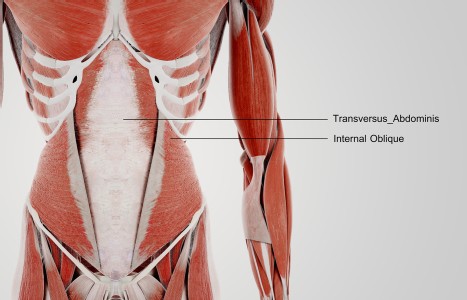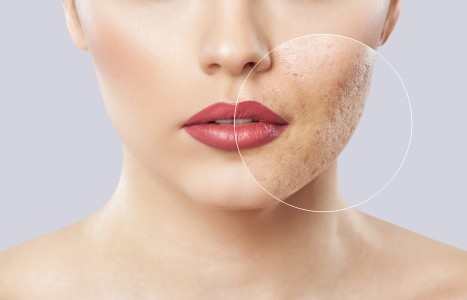TrA-2, my primary needle location, I needle 95% of the time and I think it works the best. You’ll know you have the right point location when you discover the muscle twitching when applying electric stimulation.
Dealing with Dangerous Clients
Recently, a colleague in another city called to inform me that a patient had been vandalizing acupuncturists' offices around town and, they believed, slashing tires of acupuncturists' cars. He wanted to know if I knew anything about this person, and to warn me. The police had been called, and the victims were trying to put together a case against the person. I will call this person Sally.
I had indeed seen Sally for treatment about 14 years ago and found her rather unnerving, to say the least. I had also seen Sally at a seminar last summer, and it disturbed me to see her there, because I assumed that she is now some kind of practitioner of healing work.
When I saw Sally for care, it was early in my career and I was still very eager to help, without as much concern about my own safety as I have now. Additionally, I had been previously employed as a mental health counselor, working with people from the criminal justice system who were often addicts, alcoholics, antisocial or with borderline personalities, so I was not really scared by these types of people.
She refused to give a lot of information at the interview, other than what she thought was wrong and what she wanted me to do. After some probing, she admitted to having been in the state mental hospital for some time at the request of her family. She was slender and a sensitive person. I saw her as primarily a Spleen deficient type with Liver and Heart involvement. She had been having acupuncture treatments in California before and wanted me to continue the treatment that was being done there.
She directed me to needle-specific points which had been used for her before, and was very eager for me to suppress her appetite, which I thought was not appropriate, given her physique. I did the treatment that I believed was appropriate, and she came back angry the next session because I had increased her appetite. I told her that increasing her appetite would be seen as a good result of my treatment, given the diagnosis. She disagreed. We argued about the issue of my authority in making the diagnosis and treatment plan, but she was so persistent, that I did do a little work on her ear (however, not to suppress appetite).
As we went along for several treatments, I was always uncomfortable with her, but continued to treat her because she was so desperate to be helped, and there were no other acupuncturists in our area at that time. From time to time, she told stories that did not make sense and it seemed that she had very poor judgment and problems with rage. Gradually, she became more and more angry at me and began writing me letters in purple ink after each treatment, making curious references that I did not understand, and criticizing me. However, she continued to come for treatments. Finally, there was a misunderstanding about an appointment, and she stopped calling. She had borrowed a book from me (my first-edition, hardbound copy of "The Web"), and I gave up hope of ever getting it back.
Three years later, the licensing board contacted me about Sally. She had apparently made a complaint about me at that point. I sent back a carefully worded letter about exactly what had gone on, with my impressions of her from a psychodiagnostic perspective, as I had previously been a psychologist. The board seemed satisfied and there was never another word from them. Until about a year ago, when a colleague in the building that I had worked in back then called me about a book they found that had my name in it. The patient had brought my book back to the building where I had worked, 10 years later. Interesting.
Just after the time I saw Sally for treatment, I ran into an acupuncturist from her area, and he asked if I had ever met her. He said that he and another acupuncturist in a nearby town had seen the woman and both found her very difficult to work with. I said yes and told a bit about the story. The woman had done almost exactly the same things with them as with me. This was before HIPPA, and I wanted to make sure that the other acupuncturist knew of my experiences and to warn him to not work with her if he felt uncomfortable doing so. At that point, I judged that it was more important to warn the acupuncturist than to protect the person's information, since the acupuncturist had already met her, and because he was feeling uncomfortable with the patient.
Now, with the most recent contact from my colleague about this patient, I was faced again with the question of whether to discuss my experience, share information in writing, or even whether to say if I had ever met the person. HIPPA has made me much more conscious about this. I have learned that when there is psychopathology present in a patient, we must be absolutely crystal clear in our boundaries, because it seems that the least little permeability of boundaries can inflate into a huge problem.
I remembered that HIPPA states that we might break confidentiality if there has been a crime committed by or against the patient, or when the police are investigating. However, the police had not yet put together a case, as there was no hard evidence that this person had been committing the alleged crimes.
So, my question is this: If, as health care practitioners, we find ourselves being victimized by a patient, is it ethical for us to discuss the situation amongst ourselves to protect each other? The Board of Medicine (which licenses acupuncturists in our state) did not have much advice. They thought it was acceptable to let other acupuncturists know that the offices had been vandalized, and that Sally was a suspect. They said this is not a violation of HIPPA as long as we don't say anything about the patient-practitioner relationship. The Board also suggested that we send them a letter to explain our concerns in case Sally would decide to make a formal complaint to them about the acupuncturists involved. They also said that if any other acupuncturists have run-ins with her in the future, that those practitioners could send in letters and the Board would start a file on this patient.
So there we have it; the Board has spoken. I guess talking about this problem with each other is not really a violation of HIPPA because we are not going to say that this woman is or has been our patient. However, it would seem obvious that she was. What other reason would she have for targeting acupuncturists with vandalism? Having the Board's recommendation is the insurance we need to avoid being accused of violating HIPPA or accused by the patient of compromising her confidentiality. I think the Board did a good job of this, as a matter of fact. I am very happy that we have found a procedure for protecting ourselves. I'm glad that this has come up because I can imagine similar scenarios, and now I know what to do.


